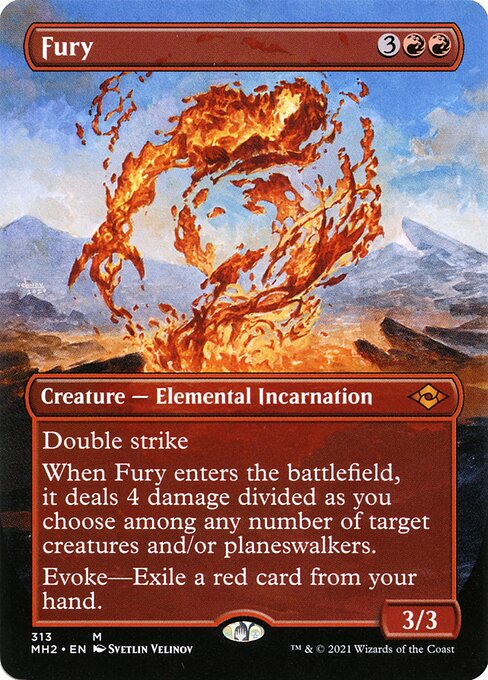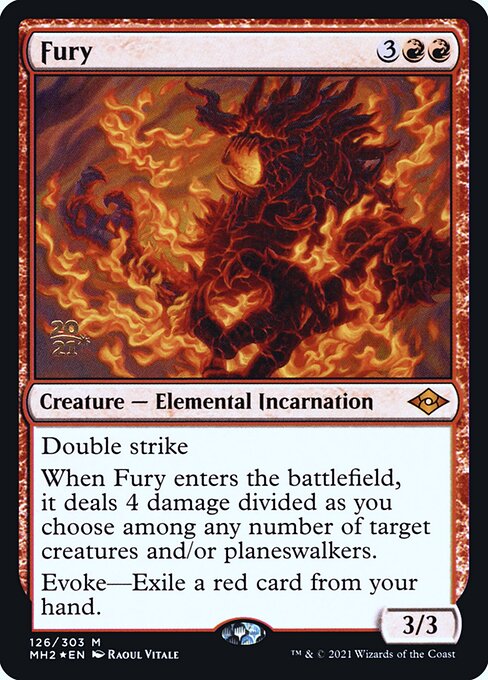standard
future
historic
gladiator
pioneer
explorer
modern
legacy
pauper
vintage
penny
commander
brawl
alchemy
paupercommander
duel
oldschool
premodern
Rulings
You divide the damage as you put the triggered ability on the stack, not as it resolves. Each target must be assigned at least 1 damage. You can't choose more than four targets and deal 0 damage to some of them.
If you pay the evoke cost, you can have the creature's own triggered ability resolve before the evoke triggered ability. You can cast spells after that ability resolves but before you have to sacrifice the creature.
If some of the targets are illegal as the triggered ability tries to resolve, the original division of damage still applies, but the damage that would have been dealt to the illegal targets isn't dealt at all.
To determine the total cost of a spell, start with the mana cost or alternative cost you're paying (such as an evoke cost), add any cost increases, then apply any cost reductions. The mana value of the spell is determined by only its mana cost, no matter what the total cost to cast that spell was.
If you pay the evoke cost, you can have the creature's own triggered ability resolve before the evoke triggered ability. You can cast spells after that ability resolves but before you have to sacrifice the creature.
If some of the targets are illegal as the triggered ability tries to resolve, the original division of damage still applies, but the damage that would have been dealt to the illegal targets isn't dealt at all.
To determine the total cost of a spell, start with the mana cost or alternative cost you're paying (such as an evoke cost), add any cost increases, then apply any cost reductions. The mana value of the spell is determined by only its mana cost, no matter what the total cost to cast that spell was.
Rulings
You divide the damage as you put the triggered ability on the stack, not as it resolves. Each target must be assigned at least 1 damage. You can't choose more than four targets and deal 0 damage to some of them.
If you pay the evoke cost, you can have the creature's own triggered ability resolve before the evoke triggered ability. You can cast spells after that ability resolves but before you have to sacrifice the creature.
If some of the targets are illegal as the triggered ability tries to resolve, the original division of damage still applies, but the damage that would have been dealt to the illegal targets isn't dealt at all.
To determine the total cost of a spell, start with the mana cost or alternative cost you're paying (such as an evoke cost), add any cost increases, then apply any cost reductions. The mana value of the spell is determined by only its mana cost, no matter what the total cost to cast that spell was.
If you pay the evoke cost, you can have the creature's own triggered ability resolve before the evoke triggered ability. You can cast spells after that ability resolves but before you have to sacrifice the creature.
If some of the targets are illegal as the triggered ability tries to resolve, the original division of damage still applies, but the damage that would have been dealt to the illegal targets isn't dealt at all.
To determine the total cost of a spell, start with the mana cost or alternative cost you're paying (such as an evoke cost), add any cost increases, then apply any cost reductions. The mana value of the spell is determined by only its mana cost, no matter what the total cost to cast that spell was.
Your collection? Your decks?
Want to manage your collection and/or create decks?



 0
0
 4.95€
4.95€



